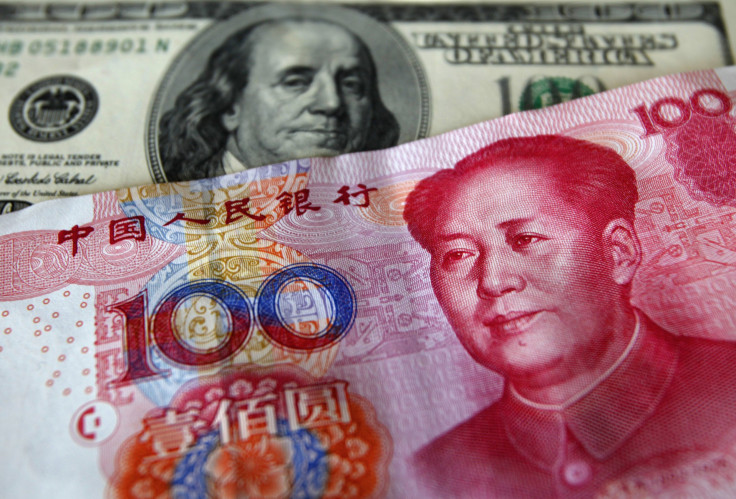China's Forex Reserves Drop To Lowest Level In Over 2 Years As Central Bank Acts To Support Yuan

China’s foreign exchange reserves fell to their lowest levels in over two years in November, data released Monday by the People’s Bank of China showed. Last month, the country’s forex reserves declined by $87.22 billion from October, dropping to $3.428 trillion -- the lowest level since February 2013, when reserves dropped to $3.395 trillion.
Analysts and traders have kept a close eye on the reserves since August, when China’s central bank decided to devalue the yuan by over 2 percent. The move, aimed at boosting exports and kick-starting an economy that is growing at its slowest pace in decades, worsened a stock market rout in the country as investors speculated over the possibility of further currency weakening.
Even as the central bank sold dollars to prop up the yuan, a strong dollar continued to weigh down on the value of its reserves. Since August, the yuan has fallen 3.2 percent against the dollar, while the greenback has gained over 2.5 percent against a basket of major currencies.
Moreover, as prospects of a rate hike by the U.S. Federal Reserve later this month become increasingly likely, the yuan is expected to depreciate further, as investors pull out capital from riskier emerging market assets.
“The pick-up in capital outflows appears to have been predominately driven by increased expectations for renminbi (yuan) depreciation,” Julian Evans-Pritchard, a China economist at Capital Economics, reportedly said. “A rise in offshore interest rates due to the increased likelihood of a December Fed rate hike will also have added to outflow pressures.”
Moreover, following last week’s decision by the International Monetary Fund to allow the yuan to join a basket of reserve currencies known as Special Drawing Rights -- a decision will take effect from October 2016 -- the yuan is expected to weaken further. However, if China’s central bank follows through on its pledge to reduce currency intervention, the impact of the IMF decision on forex reserves is likely to remain muted.
© Copyright IBTimes 2024. All rights reserved.






















